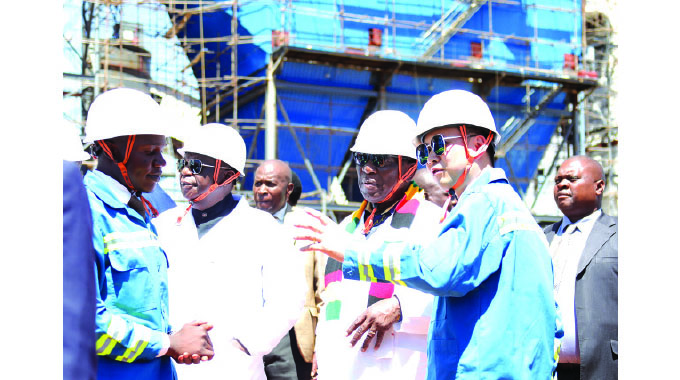Editorial Comment:- Corruption: Ball in Government’s court

 Every nation faces multifarious problems on a daily basis, and at this moment in history Zimbabwe faces a twin that has captured public attention like no other in recent times.The first is corruption in both the public and the private sectors. In as much as anger is justifiably targeted at abuses that border on — and in several cases are outright — criminality in public-funded enterprises, much of the graft cannot occur without private sector compliance and/or instigation.
Every nation faces multifarious problems on a daily basis, and at this moment in history Zimbabwe faces a twin that has captured public attention like no other in recent times.The first is corruption in both the public and the private sectors. In as much as anger is justifiably targeted at abuses that border on — and in several cases are outright — criminality in public-funded enterprises, much of the graft cannot occur without private sector compliance and/or instigation.
Yes, a lot of the corruption we see involves either State officials or people that the state has tasked to run particular businesses and provide essential services. But at the same time, the private sector is deeply involved in this; either through our murky tender system, our near-enclave banking sector and a network of middlemen who promise heaven on earth at the most ridiculously high prices.
Public sector corruption is indeed a major thorn in the flesh, more so in an environment such as ours where economic sanctions are inflicting their own harm, but this scourge cannot be dealt with without concurrently confronting graft in the private sector.
And this brings us to the second aspect of the twin challenge that has preoccupied our nation in recent weeks: that of how we practically deal with corruption.
It is one thing to expose corruption, and quite another to bring to book perpetrators.
As already indicated, there is much anger that has been brewed by the revelations of looting of public funds. This anger stems from not just the fact that money has been pilfered, but also that there seems to be little action from authorities to deal with the characters named thus far.
The anger is further fed by a perception in some quarters that perhaps Government officials are not serious about rooting out corruption, despite President Mugabe’s firm declaration of zero tolerance for the vice.
This was exacerbated by a recent directive by Local Government Minister Dr Ignatius Chombo to reinstate suspended Harare town clerk Dr Tendai Mahachi, who Mayor Bernard Manyenyeni had put on ice for three months for failing to reveal what kind of salaries are being paid to managers at council.
And that Mayor Manyenyeni wrote a reinstatement letter to Dr Mahachi, despite claiming in public that he does not know why the town clerk is reporting for duty, will only further fuel anger among people who think that the State machinery is not serious about stamping out abuse of public offices and funds.
The authorities will tell us that they cannot rush to prosecute people on the basis of newspaper reports. That is correct and we support it fully. Our issue though would be this: are the arms of Government seriously telling the nation that they were not aware of what has been going on and that they are hearing it for the first time in the media?
Surely, someone somewhere knew of these shenanigans and has ample evidence to secure dismissals and prosecutions wherever appropriate. In the concerned companies, at their parent ministries, in police offices, in Anti-Corruption Commission safes, and at Chaminuka Building, surely among all these there is sufficient documentation to have action taken much quicker.
Government cannot be waiting for the media to expose corruption; Government must be telling the media how it is dealing with corruption. Beyond those cases that have been reported on, there are many people in Government and at parastatals who have information on other incidences and patterns of graft and abuse and these should be acted on without first having to wait for media exposure.
It should be made clear to the corrupt that they are better off resigning now rather than waiting for media exposure and subsequent public trials. Because they certainly shall be exposed, and the public shall demand justice.
What we ask Government now is: what is it doing?







Comments